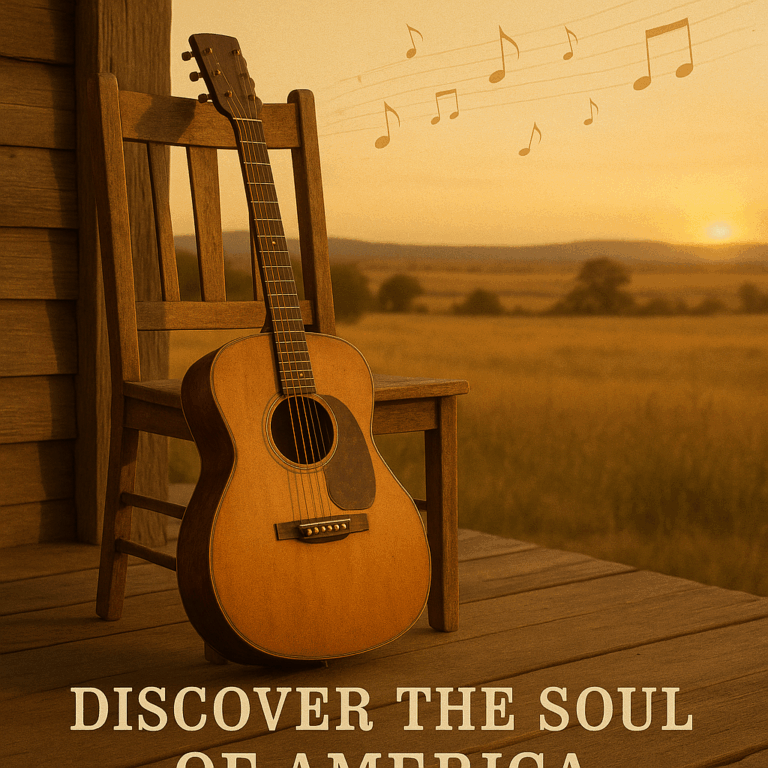The Roots and Rise of Americana Music
Americana music, that rich, textured tapestry woven from the threads of American music history, stands as a testament to the profound storytelling power of roots-based sounds. Emerging from the intersection of folk, country, blues, and rockabilly, Americana doesn’t just encapsulate a genre; it embodies the heartbeat of a nation’s musical soul. To dive into Americana is to dip into a wellspring of narrative tradition and living heritage that has shaped much of the music landscape we cherish today.
Historically, Americana music is rooted in the very American experience—a melting pot of cultural influences coalescing in the rural South and Midwest throughout the early 20th century. Think back to the dusty porches of Appalachia, where mountain ballads echoed alongside the rhythmic, mournful strains of the blues from the Mississippi Delta. These sounds, though born from hardship and diverse cultural lineage, merged into a dynamic form of expression that narrated the triumphs, sorrows, and everyday lives of ordinary people. It’s impossible to separate the rise of Americana from the larger tapestry of American music, given how deeply intertwined it is with country’s honky-tonks and folk’s protest anthems, all imbued with a genuine, heartfelt grit.
What Sets Americana Apart

At its core, Americana music is an amalgam, a genre defined less by strict musical parameters and more by an attitude toward storytelling and authenticity. Electric guitars may jangle alongside mandolins; fiddle strains weave amidst pedal steel notes; and lyrics often shift between historical retrospection and intimate introspection. The genre’s flexibility is its strength — it draws from rock music’s energy, heavy metal’s occasional edge, and the deep-rooted traditions of American music’s earliest chapters.
Americana is never about slick production or chart-driven formulas. Instead, it champions organic instrumentation, raw vocals, and songs that feel lived-in and lived-through. The genre thrives on lyrical narratives that evoke vivid imagery—blue-collar struggles, open roads, love lost and found, and the ever-changing American landscape. There’s often a melancholic undercurrent, a yearning for something just out of reach, which connects listeners to the universal human condition.
Icons and Storytellers: The Architects of Americana
When it comes to key artists who define Americana, a lineage of storytellers immediately springs to mind. Early pioneers like Woody Guthrie and Hank Williams laid the foundation with songs that bridged folk and country traditions, embedding the genre with narrative clarity and emotional resonance. Guthrie’s “This Land Is Your Land” remains a patriotic anthem that transcends its era, while Williams’ heartfelt ballads like “I’m So Lonesome I Could Cry” echoed universal ache through deceptively simple melodies.
Moving into the late 20th century, the Americana torch was picked up by trailblazers like Emmylou Harris and Gram Parsons. Parsons, often dubbed the “father of country rock,” was instrumental in blending rock music’s rhythms with country’s storytelling, laying groundwork for what would blossom into Americana. Emmylou Harris, with her crystalline voice and impeccable song choices, marshaled this fusion into a powerhouse, bringing authenticity and grace to the forefront.
More contemporary torchbearers like Lucinda Williams, Jason Isbell, and Gillian Welch have refined Americana’s art of storytelling with raw honesty and vivid lyricism. Lucinda Williams’ album “Car Wheels on a Gravel Road” is often hailed as a masterpiece, marrying blues, country, and rock influences with lyrical genius that explores the intricate dance of human relationships against the backdrop of American life. Jason Isbell, once a member of the Drive-By Truckers, delivers gut-punch songwriting grounded in personal struggle and redemption. His album “Southeastern” is a breathtaking example of Americana’s emotional depth.
Landmark Songs and Albums That Define Americana
To talk Americana is to speak of songs that linger long after the last note fades. Gram Parsons’ “Grievous Angel” remains a pivotal record that crystallized the hybrid sound of rock and country storytelling. Emmylou Harris’ “Elite Hotel” album brings together a collection of songs that feel like intimate conversations with the American heartland, from introspective ballads to foot-stomping tales.
Lucinda Williams’ “Car Wheels on a Gravel Road” represents a landmark moment where Americana transcended its niche audience and gained critical acclaim for its brilliant songwriting and production. Jason Isbell’s “Southeastern” offers songs like “Cover Me Up,” a brutally honest and tender account of love and recovery, embodying Americana’s power to transform personal pain into shared catharsis.
Other notable albums include Steve Earle’s “Copperhead Road,” which blends folk, rock, and bluegrass while telling gritty stories of working-class America. The band The Band’s self-titled album merges folk, rock music, and soul into an Americana cocktail that influences artists decades later.
The Enduring Impact of Americana Music
Americana music’s lasting effect is palpable, not just as a genre, but as a dynamic cultural force. It has become a refuge for those seeking music with substance amid a commercial landscape often dominated by gloss and synthetic beats. The Americana Music Association’s growth and the rise of Americana festivals across the country speak to an audience hungry for stories rooted in place and truth.
Moreover, Americana has influenced countless artists within rock music and even heavy metal circles, encouraging them to explore their own roots or inject storytelling depth into their sound. The raw honesty and narrative traditions of Americana have bridged gaps between genres, revealing that beneath surface differences lies a shared commitment to musical storytelling.
In seeing Americana’s evolution, it’s clear that this genre isn’t static—it breathes, adapts, and continues to grow by absorbing new influences while honoring its past. For fans of American music, Americana offers a deep, resonant connection to both history and modernity. It’s the soundtrack of the American experience—complex, soulful, and relentlessly human. When you listen to Americana, you’re not just hearing music; you’re stepping into the stories and struggles that have shaped generations, told by voices that refuse to be forgotten.